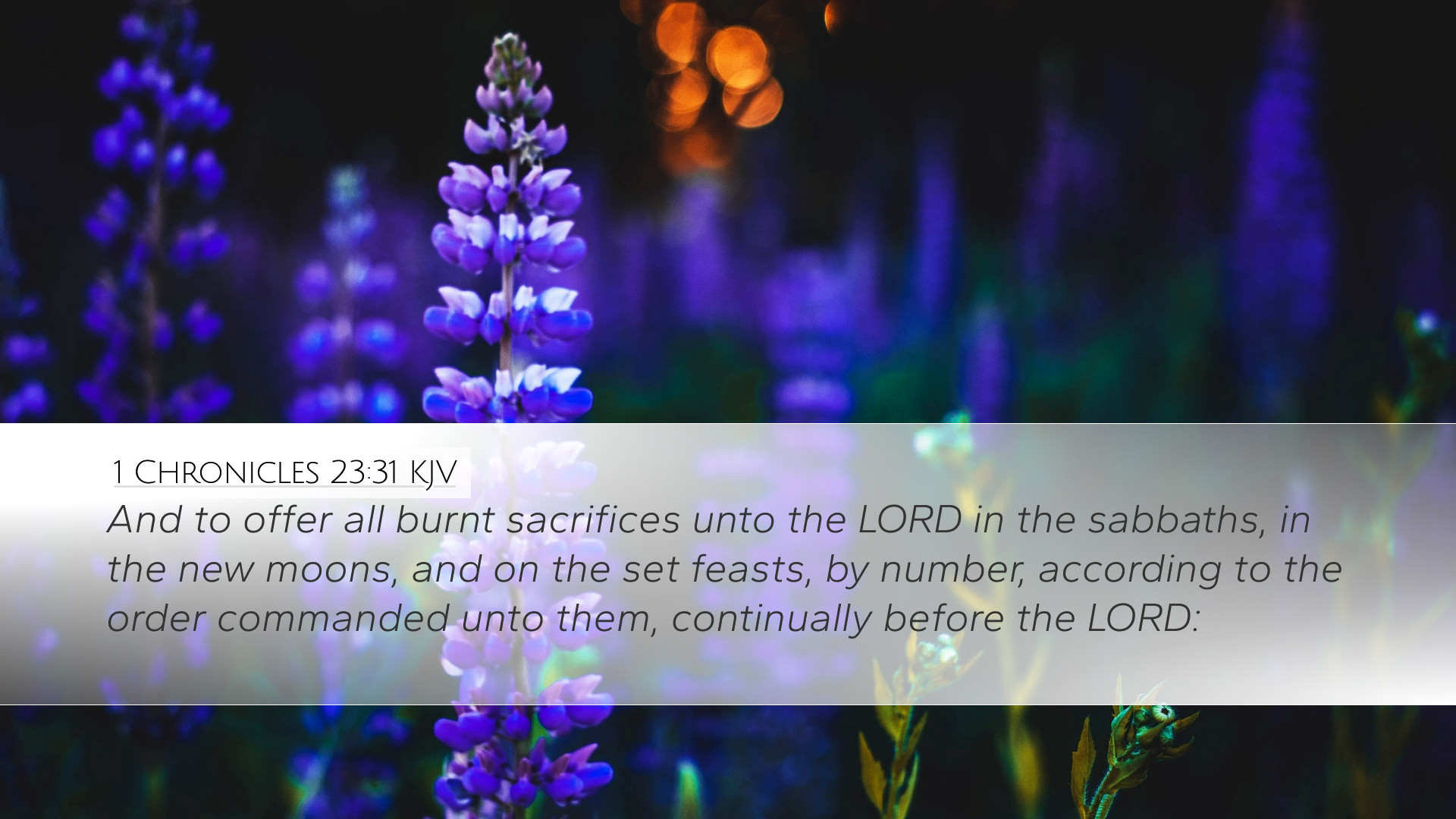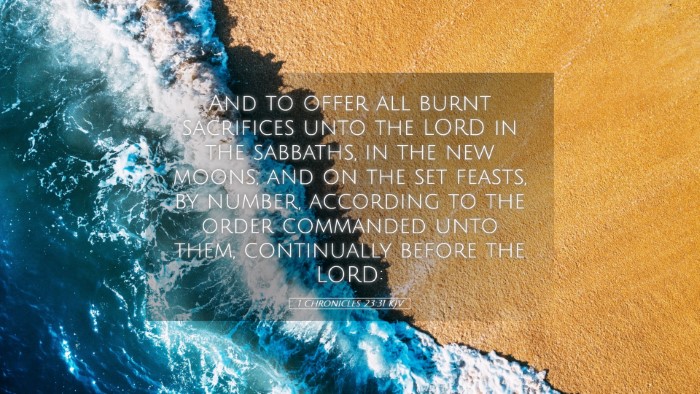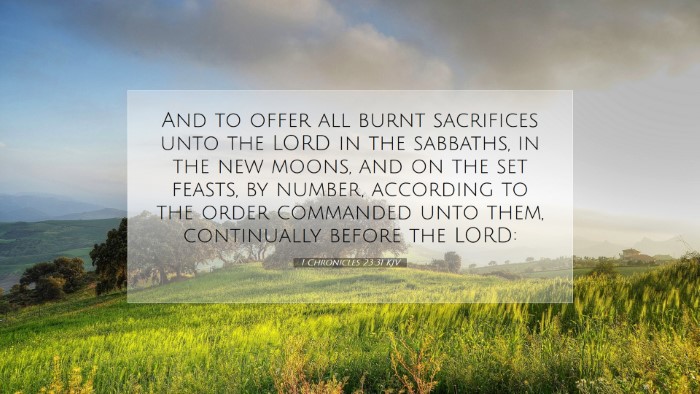1 Chronicles 23:31 (KJV) - "And to offer all burnt sacrifices unto the LORD in the sabbaths, in the new moons, and on the set feasts, by number, according to the order commanded unto them, continually before the LORD."
Introduction
The verse 1 Chronicles 23:31 encapsulates critical aspects of worship and the responsibilities assigned to the Levites in the Old Testament. It highlights a structured approach to sacrificial offerings which is pivotal in understanding the broader theological and liturgical framework of ancient Israel.
Contextual Background
This passage is situated in a section where King David organizes the Levites regarding their duties in the tabernacle service. The Levites, descendants of Levi, were set apart for religious duties and were essential for maintaining the worship life of Israel. This organizational structure was vital for the spiritual health of the nation.
Theological Implications
- Covenant Relationship with God: The practice of offering sacrifices relates directly to the covenant relationship Israel had with God. It serves as a reminder of God's holiness and the need for atonement.
- Order in Worship: The phrase "by number, according to the order commanded" emphasizes the importance of order and structure in worship. This shows that God values not only the heart behind the worship but also the form it takes.
- Regularity of Worship: The mention of offerings during the sabbaths, new moons, and set feasts signifies regular times of worship that shape the community’s spiritual rhythm. This reinforces the idea of time set apart for God.
Commentary Insights
Matthew Henry’s Commentary
Matthew Henry emphasizes the significance of the Levites' role in offering sacrifices as a vital part of maintaining Israel's relationship with God. He draws attention to the necessity for both order and devotion in worship practices. Henry notes that the commitment to bring these sacrifices continually before the Lord indicates a lifestyle of worship rather than a mere ritual.
Albert Barnes’ Notes
Albert Barnes elaborates on the systematic arrangement of the offerings specified in this verse. He highlights that the offerings were not just for the appeasing of God’s anger but were acts of gratitude and recognition of God’s ongoing provision. Barnes provides insights into how these practices fostered not only individual piety but also communal identity centered around worship.
Adam Clarke’s Commentary
Adam Clarke provides a historical-critical perspective, noting how these practices reflect the continued importance of sacrificial systems in Jewish worship long after the Babylonian exile. He critiques the loss of such structured worship in modern contexts, calling for a return to reverence and order in today’s worship practices that mirror these ancient traditions.
Application for Today
This verse serves as a reminder for contemporary worshippers about the importance of structure and discipline in their spiritual lives. The call to offer sacrifices at appointed times reflects how believers today can cultivate a rhythm of worship through intentional practices such as corporate worship, personal devotion, and community gatherings.
- Setting Apart Time for God: Just as ancient Israel had set times for worship, modern believers are encouraged to dedicate specific times in their weekly schedule for worship and prayer.
- Community Engagement in Worship: This verse highlights the communal aspect of worship—believers should gather together to celebrate the feasts of faith, facilitating accountability and corporate growth.
- Understanding Sacrifice: While sacrifices today look different, understanding the heart behind these offerings can deepen one’s appreciation for Christ’s ultimate sacrifice.
Conclusion
1 Chronicles 23:31 presents profound truths about worship, order, and the Levites' roles that extend beyond the historical context into vital lessons for modern faith communities. Engaging with the insights of the great commentators helps reinforce the relevance of these Old Testament practices and principles for today’s church.


